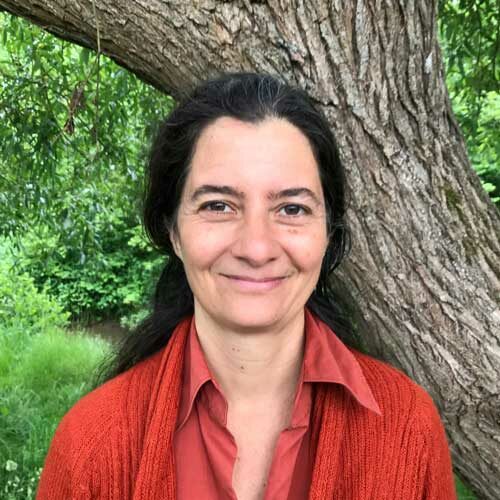Feelings have the power to motivate one toward wise action when facing a challenge. They can also cause intense suffering, drive and distort behavior, and lead to regret. Being able to work with emotions, both intense and subtle, is a skill that can be developed through mindfulness meditation. We explore the Unified Mindfulness technique of focusing on “flow” in emotions in the body. Being able to detect the changing nature of emotions moment by moment can be a liberating experience and free one up to act with wisdom and compassion.
With Nina La Rosa recorded on December 4, 2016.
Found our teachings useful? Help us continue our work and support your teachers with a donation. Here’s how.
Discover more from the Dharma Library
-

Daily Meditation Recordings, with Zohar Lavie – Week of December 12, 2022
This week’s topic is “Interwoven and Free”
The Buddha invited us to investigate our experience moment by moment. One of the key things we uncover as we do this is that separation is an illusion, and that we are deeply interwoven and interconnected with all beings and all things. This week we will disentangle the habitual knots of isolation and ignorance and open to the freedom available as we open our exploration of inter-being.
-

Daily Meditation Recordings, with Nathan Glyde – Week of February 20, 2023
This week’s topic is Subtilising Experience. The Dharma is a path to awakening. Our experience becomes more liberated as we awaken. Similarly, we can notice that our life progresses from the gross to the more subtle in awakening. A path of awakening freedom, then, is a path of subtilising: from perceptions of self and things in the world to space-time and even awareness, all phenomena transition from rigid and gross to fluid and refined, all the way to barely here at all.
-

Mindfulness of feeling tone (vedana).
Recorded :
April 12, 2015 During this session Martine practices and explores mindfulness of the feeling tones, which is the second foundation of the practice of mindfulness. First, she guides a meditation on mindfulness of the feeling tones. Afterwards she tries to define feeling tones and how to be mindful of them in our daily life. The Pali term Vedana…
-

Awakening a Fierce Feminine Buddhism
Recorded :
March 15, 2020 What would it look like to re-weave historical and archetypal women’s stories back into the fabric of Buddhist teachings? How could the inclusion of feminine qualities—receptivity, relationship, intuition and embodiment—transform the shape of practice? Join Pamela Weiss for an exploration on how to reimagine Buddhism through a feminine lens.
-

The Beauty of Being
Recorded :
May 27, 2018 Leela says: “Over the years my interest in awakening has be reformulated as how to be a real human being. In this session I invite you to explore, with me, the possibility of being grounded in the natural goodness of being. We will inquire how to live a full life from the ground of presence,…
-

A Pathway to Freedom Through Connecting with the Body
Recorded :
June 19, 2022 Where’s your body? Can you feel it? Is it still there?! Life is full. There’s so much to plan and think about. We can go hours without feeling a single breath or footstep. Can you relate? By getting lost in our thoughts we over-identify with a limited sense of “self” and therefore suffer. We will…
-

Daily Meditation Recordings, with Martin Aylward – Week of September 21, 2020
We’re fortunate that Martin Aylward has generously offered to lead our daily meditation sessions for Europe and the UK this week. To find out more about Martin, and view his other recordings on the platform, click here.
-

Sitting with Pointlessness – Living with Potentiality
Recorded :
October 16, 2022 During a recent retreat, the teachers’ instruction was to hold the question ‘What is this?’ in mind. While sitting on the cushion, the thought struck me that my life is futile! I am genetically programmed for survival and sex; everything else is just distracting window-dressing. This talk will explore the journey from the apparent ‘futility’…








Discussion